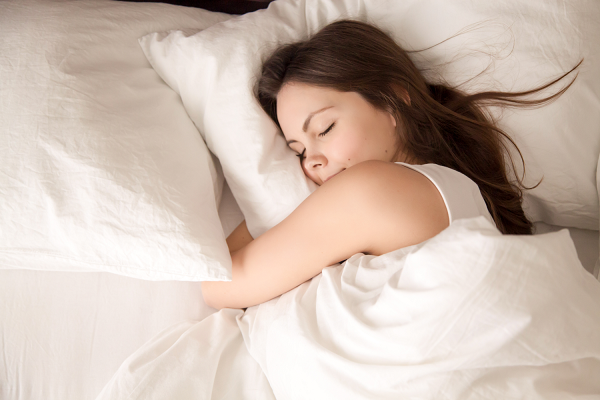What is the Best Temperature for Sleep?
What’s the first thing that would come to your mind when we talk about sleep? It would be your bed. That’s why our first instinct is to get high-quality mattresses, silk sheets, and the most comfortable pillows when we want to improve our sleep. Read this post to learn more.
While we can’t deny that your bedding is important, there’s another aspect of your bedroom that we should consider when trying to get better sleep. It’s no other than your room’s temperature.
Do you fall asleep fast only to wake up 3 to 4 hours after? Do you find it difficult to fall back asleep once you wake up in the middle of the night? Well, you may want to adjust your room’s thermostat.
But what is the best temperature for sleep? Read on to find out!
How Temperature Affects Sleep?
Before we reveal the magic numbers to you, let us first explore the connection between temperature and sleep. Well, the bridge between the two in our internal body temperature.
The temperature inside our body changes throughout the day, and we refer to this phenomenon as the circadian rhythm. At night, our body loses heat, and it continues to do so until around 5 AM. Most experts attribute this to the presence of melatonin.
You see, the release of melatonin is stimulated come nighttime or when the room gets dark. The increase of melatonin levels in our blood facilitates heat loss. As we get into our beds and prepare to sleep, our body temperature continues to decline. It will be two to three degrees lower than our body’s daytime temperature. The drop in our body’s temperature is what induces sleep.
Here’s when the room temperature will come into the picture. When your bedroom’s temperature is closer to that of your body, it will be easier for your body to achieve the right internal temperature for sleep. The faster it reaches the right temperature, the faster you can fall asleep.
On the other hand, your sleep will get disrupted if the room temperature is higher or lower than your body temperature.
What’s the Best Temperature for Sleep?
Now that you know how important temperature is in getting a good night’s sleep, it’s time for us to answer the big question. What’s the best temperature for sleep?
It’s challenging to state the exact sleep temperature as it may vary from one person to another, but we’ll share the ideal sleeping temperature range with you. According to neurologists, the best temperature for sleep is between 60 to 67 degrees Fahrenheit.
But as we’ve mentioned, the ideal temperature may change from person to another. If you have a health condition that makes you feel cold, you may want to sleep at a higher temperature than the recommended.
If you have babies, you may be concerned that this temperature range may be too cold. If that’s the case, you may also increase the temperature by one to two degrees since babies cannot regulate their body temperatures as easily as adults.
Tips to Maintain the Best Room Temperature
So how can you maintain the right temperature inside your room? Here are some tips:
Set your cooling unit at night.
The easiest way is to turn on your air conditioning unit late in the afternoon. In this way, you’re sure that you will achieve the right temperature at night.
Invest in a thermostat.
By doing so, you can quickly determine if the temperature inside your room is within range and adjust it accordingly.
Open the windows.
If you find your room too stuffy, try to open the windows and let some air. This is the best way to lower the temperature inside the room.
Change your bedding according to the season.
The thickness and material of your bedding can make you feel hotter or colder, so make sure that the bedding you use is suitable for the current season.
During the summer season, opt for light blankets. On the other hand, you may need thicker wool blankets when winter comes.
Final Words
Every aspect of your room matters—the comfort level of your bedding, your room colors, the light brightness, and the temperature inside your room— so you should pay attention to all of them.
If you want to sleep better at night, don’t forget to check if your room’s thermostat is at its optimum level– between 60 and 67 degrees Fahrenheit.
